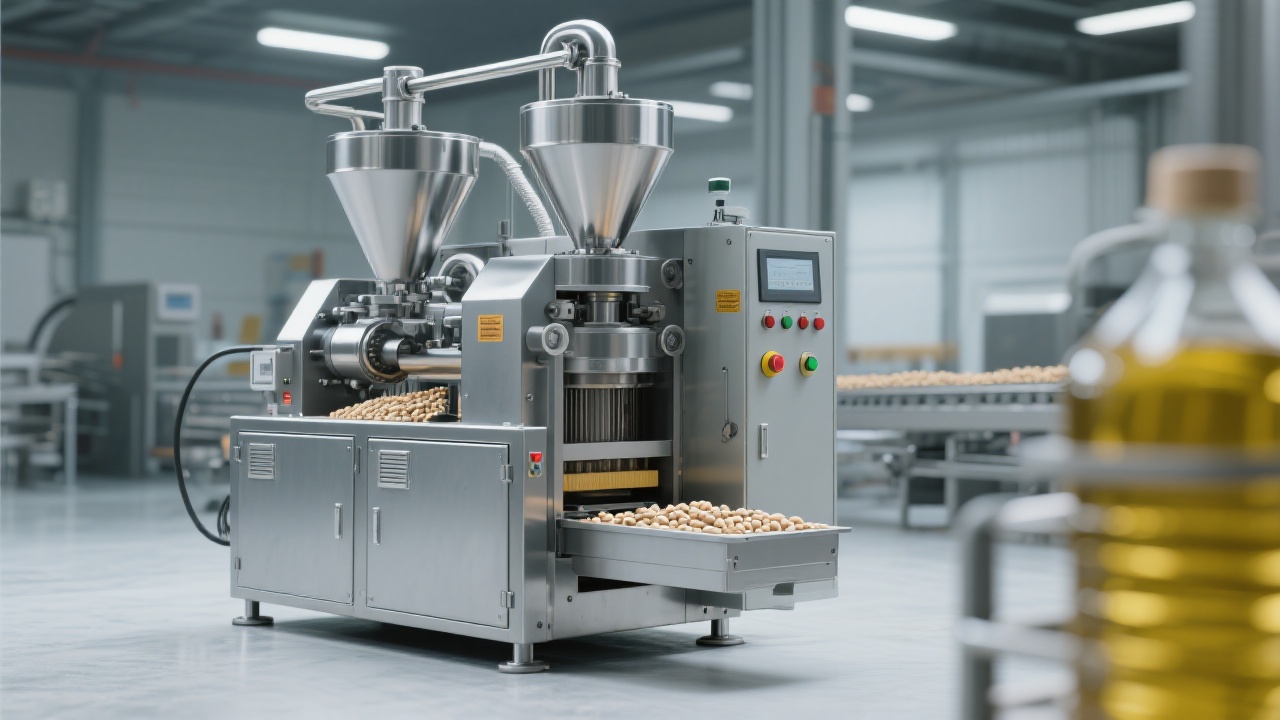
Soybean oil mills are at the forefront of the modern oil - producing industry, renowned for their remarkable multifunctionality. These mills are not limited to processing soybeans alone; they have the capability to handle a wide range of oilseeds. For instance, they can efficiently process peanuts, which typically have an oil content of around 40 - 50%. With advanced extraction technology, the oil yield from peanuts in a well - equipped soybean oil mill can reach up to 45%. Sunflower seeds, another common oilseed, with an oil content of about 35 - 45%, can also be processed effectively, achieving an extraction rate of approximately 42%.

Rapeseeds, rich in oil content of 38 - 46%, are also a viable option for these mills. The high - efficiency extraction process in soybean oil mills can extract up to 44% of the oil from rapeseeds. This ability to process multiple oilseeds allows businesses to diversify their product offerings and adapt to market demands more flexibly.
One of the significant advantages of soybean oil mills is their customizable output. Whether it's a small - scale local business or a large - scale industrial operation, these mills can be tailored to meet specific needs. For micro - scale operations, a compact and cost - effective oil mill can be set up. These small mills can have a daily processing capacity of around 1 - 5 tons of oilseeds. They are ideal for local farmers or small - business owners who want to produce oil for local markets.
On the other hand, large - scale industrial soybean oil mills can have a processing capacity of over 100 tons per day. These mills are equipped with advanced automation and control systems, ensuring high - quality and high - volume production. They can be customized with different production lines, storage facilities, and quality control measures according to the requirements of large enterprises.

Let's look at some real - world examples to understand the value of soybean oil mills in different scenarios. A small - scale family - owned business in a rural area decided to invest in a micro - soybean oil mill. By processing locally grown peanuts and sunflower seeds, they were able to produce high - quality oil for the local community. In just a year, their business expanded, and they started supplying oil to nearby towns. Their daily production increased from a few hundred kilograms to over a ton, and their profit margins improved significantly.
A large food processing company, on the other hand, installed a large - scale soybean oil mill. This mill was customized to handle a high volume of soybeans and other oilseeds to meet the company's demand for cooking oil and other oil - based products. The mill's high - efficiency operation increased the company's production capacity by 30%, and the consistent quality of the oil enhanced the company's market competitiveness.
In the current global market, there is a growing demand for diverse and high - quality oil products. Consumers are becoming more health - conscious and are looking for oils with different nutritional profiles. Soybean oil mills are well - positioned to adapt to these trends. For example, they can produce specialty oils from different oilseeds, such as high - oleic sunflower oil, which is rich in monounsaturated fats and has health benefits.
The market also values sustainable and environmentally friendly production methods. Modern soybean oil mills are designed with energy - efficient technology, reducing energy consumption by up to 30% compared to traditional mills. This not only meets the market's environmental requirements but also reduces production costs for businesses.
Compared with other oil mills or traditional oil - extraction methods, soybean oil mills offer several technical advantages. In terms of efficiency, the advanced extraction technology in these mills allows for faster processing times. For example, a modern soybean oil mill can process a batch of soybeans in a few hours, while traditional methods may take several days.
The flexibility of soybean oil mills is also a significant advantage. They can easily switch between different oilseeds, adjust production volume according to market demand, and customize the production process to produce different grades of oil. In contrast, some specialized oil mills may be limited to processing only one type of oilseed.

In conclusion, soybean oil mills offer a comprehensive solution for businesses in the oil - producing industry. Their multifunctionality, customizable output, adaptability to industry trends, and technical advantages make them a valuable asset. If you are interested in learning more about how a soybean oil mill can benefit your business, please click here to contact us for more information.

